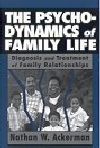Two other factors play an important role in determining who develops PTSD. There is a good deal of research to implicate the role of premorbid features; that is the nature of prior exposure to victimization increases the risk of developing PTSD. Whether one looks at the research on combat, or on being a victim of crime, or many other traumatic events, you find that prior exposure both for the individual and their family or community, can put individuals at high risk. There are a number of other premorbid features in terms of socialization patterns and the like that may also predispose individuals to develop PTSD. For example, intergenerational victimization becomes important. Some recent findings highlight that when children are victimized, if their parents have had a history of victimization, it increases the likelihood of the children developing PTSD. The last and perhaps the most overlooked factor is the nature of the recovery environment. It is not only what the person experienced and how they reacted both at the time or down the road, or whether this was the first time that they were traumatized or not. We must also consider the nature of the recovery environment - it can become critical. All we have to do is compare the reactions and welcome that Vietnam vets received versus those vets who came home from Operation Desert Storm. There is a clear need to explore the role that social support, community work and the like play. Another aspect that I think is overlooked, is the role that religion plays in helping people cope with stress. I had spent some time in Oklahoma City and saw the role that the church played there. Moreover, in recognizing that the major way that people try to cope with trauma is by means of prayer or some kind of religious ritual, I believe this highlights the need for us to expand what constitutes the recovery environment.
JSV:As you are aware, investigation of the effects of traumatic stress in children is in its infancy. What issues do you think are in need of greatest attention in this area?
DM: This is a big issue for me because I spend a good deal of time consulting at residential programs with children who have been victimized. The Melissa Institute is designed to identify high risk children and their families and communities and to develop prevention programs. So there is a good deal that I could say about this. I think that the major issue for me involves the changing scenario of urban settings in the United States where unemployment and violence, family dysfunction, poverty, racism, and the like, are so rampant. The epidemiological data highlights the widespread victimization of children. I don't think that we have fully appreciated the nature and impact of just how widespread traumatic stress is for children. Also, there is an increasing need to focus research on what constitutes resilience factors for these children. I think that explicating and building upon these resilience factors in terms of preventative programs would be most important.
JSV:We are learning more and more about the effects of secondary traumatic stress such that caregivers themselves become traumatized and/or overwhelmed through their efforts to assist others. What advice do you have for those who treat trauma survivors?
DM: Let me enumerate them in point form. These are described in more detail in theHandbook. If in fact clinicians have the chance, they should not limit their practice just to trauma survivors. Given the challenge of this population and their often unresponsiveness to various forms of treatment and the harrowing tales that they have to tell, it would be helpful to include the more traditionally "neurotic" types of cases that are more treatment responsive in terms of anxiety, marital distress and the like. This is often not a possibility for trauma therapists but if it is, I would encourage clinicians to pursue it. Secondly, I think that therapists/clinicians could benefit from debriefing. That is, having the opportunity to share the impact of their trauma work. One of the things that we know from the research is that people who have had an opportunity to tell their story to significant others do better in the long run than those people who do not share their stories. That clearly is an emerging finding in the area of working with victims. Individual therapists can develop coping techniques both within sessions and between sessions and in spheres outside of therapy. This can renew their faith which can become challenged when dealing with trauma clients and horrific tales of evil. In the same way that we know trauma can affect the belief system and outlook of clients, I suspect it can have a similar impact on therapists.


 正在提交中...
正在提交中...


